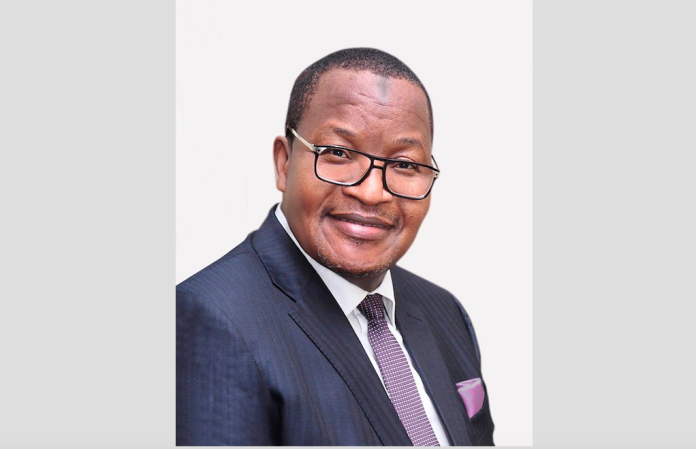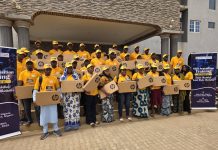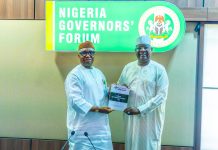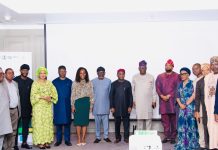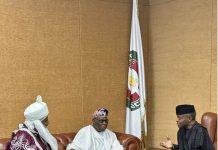Theme: “Ethical leadership as an instrument for national sustainability in the post-oil Nigerian economy. A public sector perspective”
1.0 Introduction
Leadership is the art of motivating a group of people to act towards achieving a common goal. There can never be leadership without a leader. So who is a leader? According to Nelson Mandela “a leader is like a shepherd he stays behind the flock, letting the most nimble go out ahead, whereupon the others follow, not realizing that all along they are being directed from behind.” Douglas Macarthur posited that a leader is the one that has the confidence to stand alone, the courage to make tough decisions, and the compassion to listen to the needs of others. He does not set out to be a leader, but becomes one by the quality of his actions and the integrity of his intent.” In the same vein, Babatunde Raji Fashola described a leader as “one capable of showing clear sensibility to the feelings of the led about critical issues whose influence is not necessarily exerted by his personal authority but by being the servant of the community he leads”.
In short, a good leader is one who knows when to lead and when to step back. Ethical leadership can be described as one, which demonstrates and promotes normatively appropriate conduct through personal actions and interpersonal relations.
2.0 An Overview of the Nigerian Economy.
Agriculture was the major source of Nigeria’s foreign exchange earnings prior to its independence in 1960.However, with the discovery of oil in commercial quantities in the 1970s this very important sector was relegated to the background. Currently oil revenues are dwindling worldwide due to the discovery of alternative energy sources such as solar energy, nuclear energy and geothermal energy. This means that Nigeria cannot be solely dependent on oil earnings anymore. Consequently, the FG is looking for ways of diversifying the economy. Economic diversification is the process of shifting an economy away from a single income source toward multiple sources from a growing range of sectors and markets. This is with a view to increasing productivity, creating jobs and providing the basis for sustained economic growth.
The Federal Government (FG) has made several attempts at economic diversification by setting up manufacturing and other industries such as the Ajaokuta steel rolling mills, tyre, textiles, fertilizer manufacturing companies etc. but all these attempts had little impact as majority of them have folded up, whilst others are finding it difficult to survive. The situation has been compounded by the economic recession experienced recently and the global Covid-19 pandemic which broke out in Wuhan, China in December, 2019, adversely affected the global economy and Nigeria is not exempted
Over the years, Countries and societies have evolved by finding new ways of doing things to ensure economic sustainability. This led to the first, second and third industrial revolutions. Currently countries are exploiting the fourth industrial revolution in order to diversify their economies. The fourth industrial revolution, which has also been referred to as 4IR or Industry 4.0, describes the age of intelligence and encompasses technologies like high-speed mobile Internet, Artificial Intelligence, automation, the use of big data analytics and cloud computing. However, the major constraint in Nigeria facing the 4IR is the inadequacy of digital skills, infrastructure deficit, enabling environment and inadequate infrastructure.
The 4IR is the information and digital economy age which if properly enhanced and exploited can serve as a major revenue earner for the Country in the post-oil era. This is because while natural resources such as oil, gas, etc are finite, data and information are infinite. Furthermore, the possibilities provided by the 4IR are limitless and can generate employment for Nigeria’s teeming youth population Therefore, in order to achieve economic growth using the 4IR there is the need for ethical leadership.
The Federal Government in its bid to ensure economic growth and sustainability collaborates with the Nigerian Economic Summit Group (NESG) to discuss issues and challenges facing the development of Nigeria with a view to developing and harmonizing ideas towards diversification and sustaining the economy.
In addition, the National Sustainability Committee chaired by Vice President Yemi Osinbajo, developed a National Economic Sustainability Plan (NESP). The plan is aimed at overcoming the challenges posed by the COVID-19 pandemic, enhancing oil and non-oil revenues, creation of a financial stimulus package for the Nigerian economy, support for MSMEs and the creation of jobs amongst others
3.0 Ethical Leadership as an Instrument for National Sustainability
Why ethical leadership?
Ethical leaders possess attributes that enable them function effectively. These attributes include honesty, integrity, accountability, empathy, humility, resilience, vision, influence and positivity. A leader with such attributes plays a very important role in effectively and adequately harnessing the natural and human resources of the Country. In order to achieve sustainable economic development, such leader focuses on team building, encourages initiatives by putting the right people in the right places, is a visioner who can forecast and adequately prepare for the future and above all show leadership by example.
Sustainability is the concept of conserving resources for future generations. It can be viewed from the economic, environmental and social perspectives. Economic sustainability can be described as a process, which focuses on ensuring that there is growth, which would be sufficient for all kinds of social improvement. It should be noted that economic sustainability can only be achieved where we have ethical leaders at the helm of affairs especially the public sector of the economy.
4.0 Ethical Leadership and the Public Sector Perspective
In order to achieve National sustainability in the post-oil Nigerian economy, the highest standard of ethical leadership is required of all leaders especially in the public sector. This is because the government has enormous authoritative influence on citizens. Therefore, taxpayers expect a high level of integrity from their leaders. Peoples’ confidence and trust in the government increases when their leaders develop policies and take actions that promote the interests and wellbeing of the entire society. This is because public policies have a direct impact on the citizens. Therefore ensuring ethics in the public service is very important. In this regard, the Federal government came up with a Code of Conduct for public officers, which is spelt out in the Fifth Schedule, Part 1 of the 1999 Constitution. The aim of the code is to establish and maintain a high standard of integrity in the conduct of government business and to ensure that the actions and behavior of public officers conform to the highest standards of public morality and accountability.
5.0 Conclusion
Leaders at all levels are expected to exhibit ethical behavior not only to those they lead within public organizations and institutions but everyone in the society. They are expected to be committed to the principles and values of ethical leadership. It should be noted that the citizens are demanding higher standards of ethics, transparency and accountability. Therefore, the only thing that will take Nigeria out of its current economic crisis is the diversification of the economy and having ethical leaders who will manage its resources effectively and efficiently, by ensuring adequate planning and proper management of resources, all-inclusive growth and prudence.
In conclusion, ethical leadership is essential for sustainable development of a Country. Nurturing an ethical leader is essential and this will determine the transformation and overall development of the Country. Nigeria stands at the threshold of history and would definitely need ethical leaders to ensure sustainability in the post-oil era as government takes positive steps to diversify the economy.



